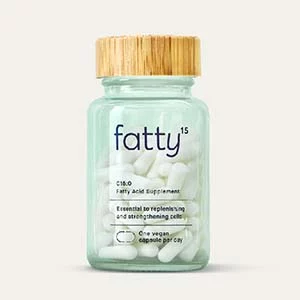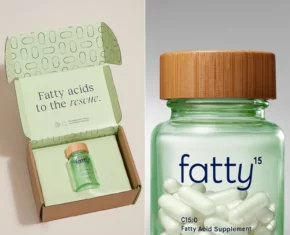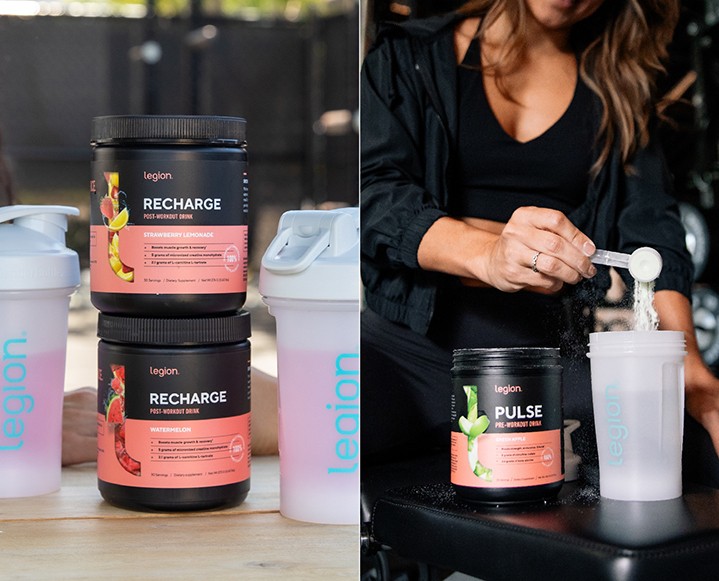Top gynecologist and Business of the V host, Dr. Alyssa Dweck MS, MD, FACOG has been voted “Top Doctor” in New York Magazine and is a consultant at Massachusetts General Hospital, Vincent’s Memorial Ob/Gyn Service and Adjunct Assistant Professor of Obstetrics & Gynecology New York Medical College. She’s also a Tru Niagen® spokesperson and the co-author of three books.
On her podcast, Business of the V, she and her co-host dive deep into the unmet needs and gynecology and sexual health and the businesses being created to address these needs.
We asked Dr. Dweck to break down one of her most commonly asked patient questions: How do some women age so gracefully — and how do I get in on that? Here’s Dr. Dweck…
How to Prepare for Menopause In Good Health…
Aging gracefully is both genetic predetermination and optimization of the aging process.
On average, menopause begins at 51; for some women the perimenopausal transition can take upwards of 10 years. For this reason I reinforce with my patients of all ages to establish healthy lifestyle habits early. Healthy living means a less dramatic and more positive hormonal transition.
Menopause is not a taboo subject in my office. Candid conversations are vital to navigating the perimenopausal transition and optimizing quality of life.
For a smooth transition, eat well, exercise often, and engage in honest conversations about sexual health.
The sticky subject: Menopause is defined as 12 consecutive months without a period. This signals the end of the natural reproductive cycle and declining hormone production. Iconic symptoms include hot flashes, sleep disruption, and irregular periods, vaginal dryness, weight gain and mood volatility. Other, less publicized symptoms like fatigue and lowered libido may also occur.
Memorable meal plan: Remember the Mediterranean diet. Fruits and vegetables, whole grains, legumes and nuts all support weight control and limit uncomfortable hot flashes that many women experience during menopause. The Mediterranean diet is also naturally low in carbs and may promote healthy weight.
Ingredients to avoid: Caffeine. Caffeine is a known trigger for hot flashes. It’s also a short term stimulant that may be followed by low energy.
The right workout regimen: My go to exercise is running and light weight training. I encourage my patients to engage in a combination of cardio and weight and flexibility training. During menopause, women naturally lose lean muscle mass. Less muscle mass means lower metabolism and more difficulty maintaining weight. Weight training will help to build up this metabolic muscle tissue. I recommend 150 minutes of cardio per week in the form. Best to choose an activity that you enjoy.
Non-negotiable: Cut out nicotine. Aside from its well-documented health risks, smoking constricts blood vessels and increases blood pressure, and decreases tissue oxygenation. In fact, smokers tend to have more notable hot flashes during menopause.
One thing I keep in my medicine cabinet: Tru Niagen®. Menopause takes place at the cellular level along with thousands of other daily biological functions. Tru Niagen® increases a molecule called NAD+, which fuels energy generation within cells to maintain youthful cellular function. NAD+ declines with age. When our cells slow down, so do we. Tru Niagen® increases NAD+ levels by up to 50% after two weeks.
While the relationship between menopause and NAD+ is yet to be researched, increasing NAD+ through a clinically proven supplement like Tru Niagen® may boost overall energy levels before, during, and after the menopausal transition.
My Advice for Aging Well at Every Age…
In your 20’s: Establish long-lasting health habits. This time is vital to take measures to improve and sustain your metabolism and cellular health. Journaling can help you set goals, track progress, and establish healthy habits permanently.
In your 30’s: Actively manage stress as your family and career evolve and grow. Continue to practice your healthy habits through times of stress, incorporating a daily regimen that works for your lifestyle. Pay attention to your body’s cues. Take a moment for yourself to release stress with self care and meditation or mindfulness on a regular basis.
In your 40’s: Engage with preventative medicine; a proactive approach to your health and wellness will be key. Create a supplement routine that improves cellular health and addresses your unique needs.
In your 50’s: Embrace change – and talk about it. Understand that your body goes through ups and downs through the perimenopausal transition. You may notice weight fluctuations, sleep issues, and sexual concerns. Break through the stigma. Honest conversations with your healthcare provider, and even your loved ones, can help ease the stress that accompany these symptoms.
In your 60’s: Continue making healthy lifestyle choices and supporting your cellular health. Finding new means to stay physically active, mentally stimulated, and socially engaged is key. Keep your mental stamina strong. Take up a new hobby or craft to spark your creative fire.
My current mantra: “Practice what I preach.” I follow a Mediterranean style diet, exercise religiously for physical and mental wellbeing, focus on stress management, and support my cellular health with a trusted supplement routine.
Remember, menopause is and should be a time of liberation rather than one of fear or dread. It is a part of aging, and with age comes wisdom, freedom, and confidence.
At checkout, use the discount code CHALKBOARD10 for $10 off an order of 3 months or more of Tru Niagen®. Valid in the U.S. only. Not valid on wholesale orders. Not valid for current subscribers. Discount expires 7/31/2021 at 11:59pm PST. All rights reserved.














